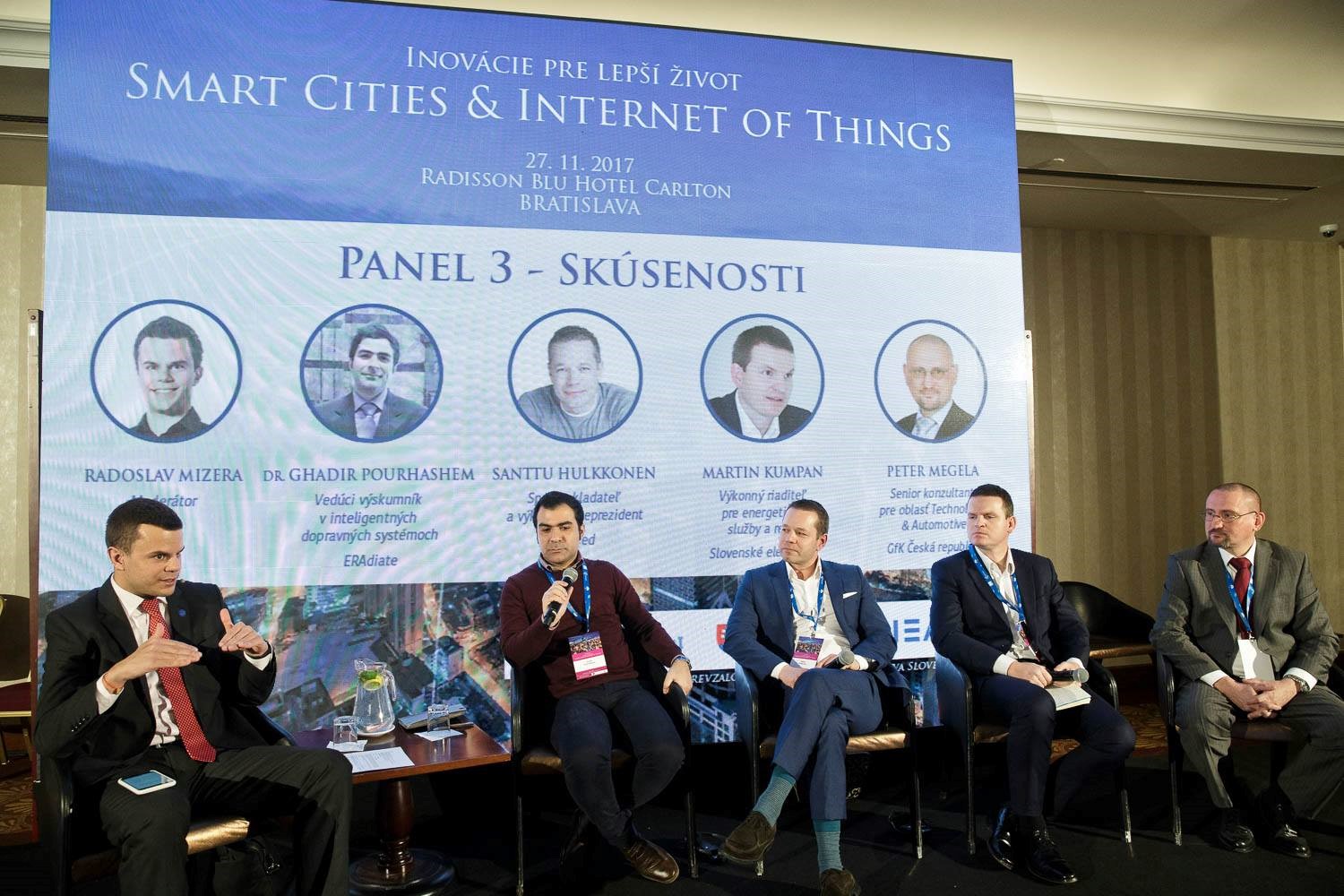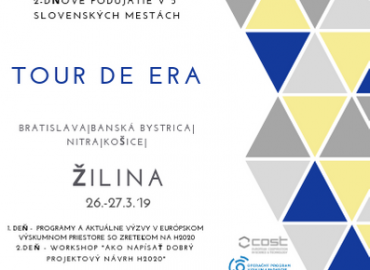On November 27, 2017, the conference Innovation for a Better Life – Smart Cities & Internet of Things was held in Bratislava. The event, organised by the Slovak Innovation and Energy Agency (SIEA), was devoted to new opportunities in implementing intelligent solutions in Slovak cities and was primarily intended for representatives of municipalities as well as for representatives of universities, the business community and entrepreneurs. The conference also presented the strategy of the Ministry of Economy of the Slovak Republic for Smart Cities.
Four panels were invited to debate on (i) the challenges of Smart Cities (how Slovakia is prepared to face them, what individual government authorities are doing at local level to solve those challenges), (ii) financial aspects (what are the specific funding and support options from the state budget, from the European Union, from institutional investors as well as from local investors?), (iii) sharing of experiencesand (iv) innovative solutions (what are the innovative solutions proposed by technology leaders and start-ups in the implementation of Smart Cities in Slovakia?). Among the innovative solutions proposed were e-governance, public information and citizen engagement.
Dr. Ghadir Pourhashem represented ERAdiate in the panel on sharing of experiences, which was composed by panelists from abroad representing various companies and organisations, from startups to research institutes. Slovak towns and municipalities are learning the Smart City principles at a slow pace. Thus, the purpose of this panel was to look at solutions from abroad in planning and managing smart cities, while taking into account the specificities of Slovak cities. Panelists drew attention to obstacles on the way to successful implementation of the concept, and emphasised their own experience. Dr. Pourhashem talked about the whole idea of smart cities and implementation of the Smart City concept. He mentioned smart solutions on how to make public services easier to access, convenient to use and effortless to manage in smart cities.
Regarding the Internet of Things (IoT) application in Slovak cities, Dr. Pourhashem and other speakers discussed the readiness of people, how quickly people adapt to change and are willing to accept them.
Panelists also provided their suggestions based on their previous experience in energy efficiency and environmental impact of urban mobility as one of the concerns at European level. They discussed to what extent smart cities can bring energy efficiency in European countries while almost ¾ of European citizens live in cities and consume 70% of EU’s energy.


